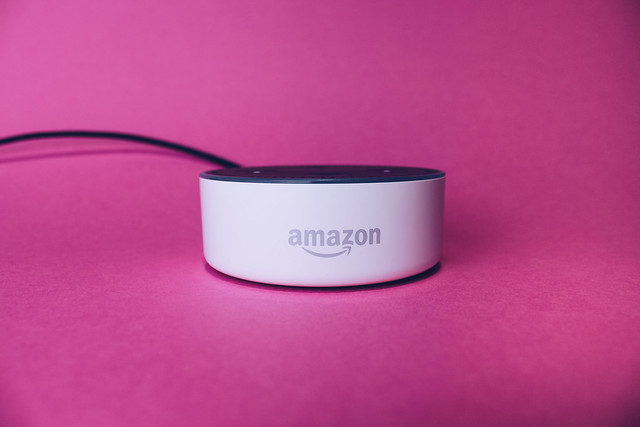 AI
AI
 AI
AI
 AI
AI
Amazon.com Inc. just became the latest company to unsettle consumers over the fact their data might not be as hidden as they thought.
According to Bloomberg, which spoke with a number of employees at Amazon on the condition of anonymity, employees on its Alexa auditing team have access to users’ location data and might know exactly where those Alexa users live. This is a large team, too, said to be working on three continents.
That team’s main focus is to go through verbal requests made to Alexa and then analyze that data so the voice assistant can better understand certain requests. That’s all good, but staff who spoke with Bloomberg have expressed concern that being able to pinpoint a user’s home residence is perhaps a breach of privacy.
Amazon responded to the news, saying only a limited number of employees had access to the data and mapping software. “Access to internal tools is highly controlled, and is only granted to a limited number of employees who require these tools to train and improve the service by processing an extremely small sample of interactions,” the company said in a statement.
Nonetheless, according to the Bloomberg report that limited number might be in the thousands. An employee of Amazon showed Bloomberg how it worked, revealing that in less than a minute an employee could listen to a request made somewhere in the world and then see an image of that person’s house.
“Our policies strictly prohibit employee access to or use of customer data for any other reason, and we have a zero tolerance policy for abuse of our systems,” Amazon went on. “We regularly audit employee access to internal tools and limit access whenever and wherever possible.”
This way of doing things it seems is different from how other companies work. For example, both the Google Assistant and Apple’s Siri might hear requests, but those requests if analyzed won’t be identifiable. For now this has put Amazon in the hot seat, and the large number of digital assistant users that already feel uncomfortable about their data have another reason to worry.
Support our mission to keep content open and free by engaging with theCUBE community. Join theCUBE’s Alumni Trust Network, where technology leaders connect, share intelligence and create opportunities.
Founded by tech visionaries John Furrier and Dave Vellante, SiliconANGLE Media has built a dynamic ecosystem of industry-leading digital media brands that reach 15+ million elite tech professionals. Our new proprietary theCUBE AI Video Cloud is breaking ground in audience interaction, leveraging theCUBEai.com neural network to help technology companies make data-driven decisions and stay at the forefront of industry conversations.